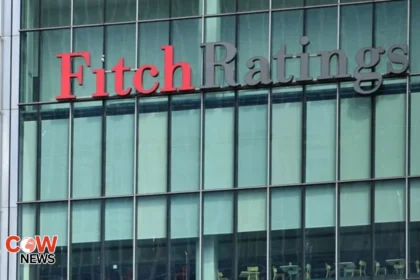Introduction
In a recent move that has sparked considerable debate within the healthcare community, medical professionals in Pakistan have been advised to refrain from discussing religion and politics on social media platforms. This directive, issued by various medical associations and regulatory bodies, aims to maintain professional decorum and ensure that healthcare providers focus on their primary responsibilities—patient care and public health. This article explores the rationale behind this guidance, the implications for medical professionals, and the reactions from various stakeholders in society.
Background of the Directive
The rise of social media has transformed how professionals in various fields communicate with the public and engage with their communities. While it offers an invaluable platform for education and advocacy, it has also blurred the lines between personal opinions and professional responsibilities. In the healthcare sector, where trust and integrity are paramount, this blending can lead to complications.
1. The Role of Social Media in Healthcare:
Social media serves as a powerful tool for medical professionals to share knowledge, connect with peers, and educate patients. However, it also exposes them to public scrutiny and criticism. Discussions surrounding sensitive topics such as religion and politics can lead to polarizing opinions, potentially jeopardizing the trust that patients place in their healthcare providers.
2. Recent Trends:
Recent events and debates surrounding healthcare policies and practices have prompted many healthcare professionals to express their views online. While the intention may be to inform or engage, these discussions have often resulted in backlash, leading to calls for a more cautious approach.
Reasons for the Advisory
The directive urging medical professionals to avoid discussing religion and politics on social media is grounded in several key considerations:
1. Professionalism and Objectivity:
Medical professionals are expected to maintain a high standard of professionalism in their interactions with patients and the public. Engaging in discussions about contentious issues like religion and politics may compromise their objectivity, making it difficult for patients to trust their expertise.
2. Impact on Patient Care:
The primary focus of healthcare professionals should be on patient care and well-being. Discussions that veer into personal beliefs or political opinions can create an uncomfortable environment for patients, who may feel judged or misunderstood based on their own beliefs.
3. Reputation of the Medical Community:
The reputation of the healthcare profession relies heavily on public trust. Divisive discussions on social media can lead to a perception of bias or unprofessionalism within the medical community, undermining the trust that is essential for effective patient-provider relationships.
4. Legal and Ethical Considerations:
Engaging in controversial discussions can also lead to potential legal ramifications. Healthcare professionals may inadvertently violate patient confidentiality or ethical standards by sharing opinions or experiences related to sensitive topics.
Implications for Medical Professionals
The advisory for medical professionals to steer clear of political and religious discussions on social media has several implications for their practice and engagement with the public.
1. Reevaluation of Social Media Use:
Medical professionals may need to reassess their social media strategies and how they communicate with their audience. This could involve setting boundaries on what topics are appropriate for discussion and focusing on educational content that enhances public understanding of health issues.
2. Enhanced Training and Guidelines:
To support this directive, medical institutions and associations may need to provide training on effective communication strategies and social media etiquette. Establishing clear guidelines can help professionals navigate the complexities of online engagement while upholding their professional responsibilities.
3. Focus on Patient Education:
Instead of engaging in potentially divisive discussions, medical professionals are encouraged to use their platforms for patient education and advocacy. This includes sharing evidence-based information, promoting health initiatives, and addressing public health concerns without delving into personal beliefs or political opinions.
Reactions from Medical Professionals
The directive has elicited mixed reactions from medical professionals across Pakistan. While some support the initiative as a necessary measure to uphold professionalism, others express concern about limitations on free speech and self-expression.
1. Support for Professional Boundaries:
Many medical professionals recognize the importance of maintaining boundaries between personal opinions and professional responsibilities. They argue that the focus should remain on patient care and that avoiding contentious topics on social media can help preserve the integrity of the profession.
2. Concerns about Free Speech:
Conversely, some professionals feel that this directive could infringe upon their rights to express their opinions. They argue that healthcare providers are also citizens who have the right to engage in social discourse, including discussions on politics and religion, especially when these topics intersect with healthcare policies and practices.
3. Call for Open Dialogue:
There is also a call among some medical professionals for open dialogue about pressing social issues. They believe that healthcare providers have a role in advocating for changes that impact public health and that avoiding discussions of politics and religion may hinder progress on important healthcare issues.
The Role of Medical Associations
Medical associations play a crucial role in guiding the conduct of healthcare professionals. In light of the advisory, these organizations are expected to take the lead in addressing the concerns surrounding social media engagement.
1. Developing Comprehensive Guidelines:
Medical associations should develop comprehensive guidelines that outline acceptable social media practices for healthcare professionals. These guidelines can help clarify the boundaries of professional conduct while allowing for appropriate engagement with the public.
2. Fostering a Culture of Professionalism:
By promoting a culture of professionalism, medical associations can encourage members to prioritize patient care and uphold ethical standards. This includes providing resources for continuing education on effective communication strategies and the responsible use of social media.
3. Encouraging Advocacy within Boundaries:
While discouraging discussions of divisive topics, medical associations can also encourage healthcare professionals to engage in advocacy efforts that align with public health goals. This can involve promoting health initiatives and raising awareness about issues that affect patient care without delving into personal beliefs.
Social Media as a Tool for Positive Change
Despite the advisory, social media remains a powerful tool for medical professionals to effect positive change in public health. By focusing on constructive engagement, healthcare providers can harness the potential of social media while avoiding controversial discussions.
1. Educational Content:
Medical professionals can use social media platforms to share evidence-based information, promote healthy behaviors, and educate the public about various health issues. By focusing on education, they can foster a more informed community and empower individuals to make better health decisions.
2. Community Engagement:
Social media can also facilitate community engagement and participation in health initiatives. Medical professionals can promote events, health camps, and awareness campaigns that encourage public involvement in health promotion activities.
3. Support Networks:
Online platforms can serve as support networks for patients and healthcare professionals alike. Medical providers can create forums for sharing experiences, resources, and advice without veering into controversial topics, thereby fostering a sense of community and support.
The recent advisory for medical professionals to avoid discussing religion and politics on social media reflects the need to uphold professionalism and prioritize patient care. While the directive has elicited mixed reactions, it underscores the importance of maintaining boundaries in social media engagement.
As the healthcare landscape continues to evolve, medical professionals must navigate the complexities of social media while focusing on their core responsibilities. By emphasizing education, advocacy, and community engagement, healthcare providers can leverage the power of social media for positive change without compromising their professional integrity.
In a world increasingly shaped by online discourse, finding a balance between personal expression and professional responsibilities is essential for healthcare providers. By adhering to guidelines and fostering a culture of professionalism, medical professionals can ensure that their primary focus remains on delivering quality care and serving their patients effectively.
#MedicalProfessionals #SocialMediaGuidelines #Healthcare #PatientCare #FreeSpeech #PublicHealth #Professionalism







